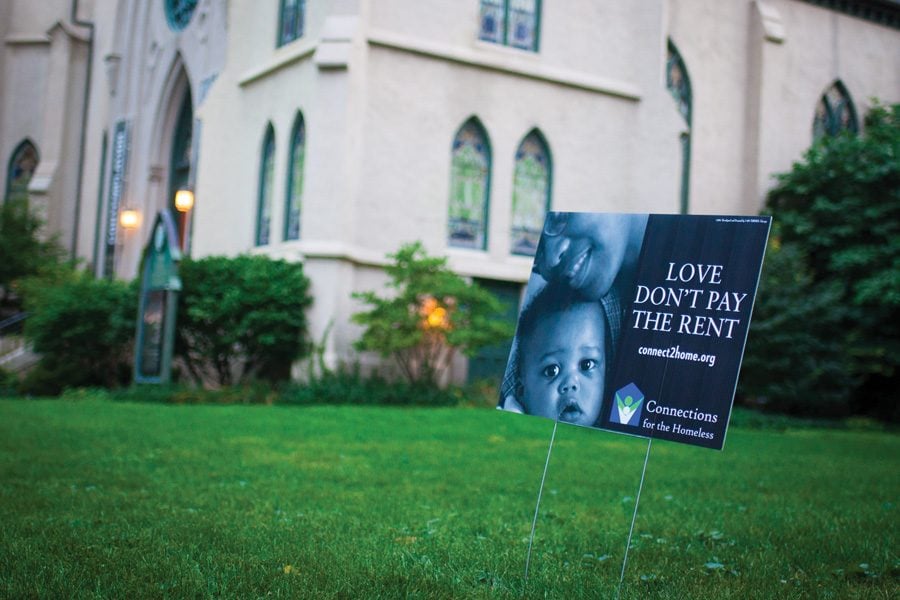Coalition proposes guidelines to address affordable housing issues in Evanston
Daily file photo by Daniel Tian
Connections for the Homeless director of development Sue Loellbach spoke at a Monday press conference before a special meeting of City Council. She and other Evanston residents presented decision-making guidelines to affordable housing issues.
November 1, 2017
A coalition focused on affordable housing issues presented a set of decision-making guidelines at a Monday news conference held before a special meeting of City Council.
Connections for the Homeless director of development Sue Loellbach said Evanston is suffering from a lack of affordable housing options. She said the council must start the process of creating a plan, establishing guidelines for making decisions and strengthening the inclusionary housing ordinance.
“Our focus is on local issues, fighting NIMBYism — not in my backyard — attitudes and doing education about affordable housing,” Loellbach said. “The lack of affordability is the number one problem facing the ability of our community to thrive and reach its full potential.”
Loellbach added that Connections for the Homeless is most successful when it can match people with housing, but finding affordable homes has become more difficult than in the past. As a result, the organization created Joining Forces for Affordable Housing, a coalition of human services agencies, communities and individuals advocating for increased housing affordability.
David Luna, executive director of Open Communities, said the combination of price and cost burdens leads to the displacement and “exodus” of moderate- and low-income households, particularly African-American and Hispanic people. The organization promotes housing, economic and social justice for immigrants and low-income workers in north suburban Chicago.
Of the 10,000 moderate- and low-income households, 51 percent are cost-burdened, Luna added. He said cost-burdened households fall into two categories: Cost-burdened households spend more than 30 percent of their incomes on housing costs, and severely cost-burdened households spend more than 50 percent on those costs.
Because communities of color in Evanston are disproportionately low-income, he said, the lack of affordable housing options unduly affects those groups.
“The combination of price and cost burden are making Evanston less economically diverse, less racially and ethnically diverse, and more prone to homelessness,” Luna said. “Is this really what we want for Evanston?”
Pastor Daniel Ruen from Grace Lutheran Church said the lack of affordable housing is a “symptom” of a bigger problem. His church is a member of the group Family Promise Chicago North Shore, a collection of congregations, synagogues, mosques and other religious institutions that provide housing to people on the North Shore.
Ruen said the church houses people three to four times a year. When a family goes to a homeless shelter, they are often split by gender and the children can no longer attend the same schools, he said.
“We have a powerful coalition that treats the symptom,” Ruen said. “But it’s the symptom of a much larger disease and the disease is the lack of affordable housing.”
Ruen said he rents affordable housing so his own children can have a safe and stable place to return home to each day. He said everyone must come together because it’s “all about the children.”
“Together we can move forward with that dream,” Ruen said. “Let’s keep moving forward and keep agitating City Council in our own hearts.”
Email: [email protected]
Twitter: @sn_handler












